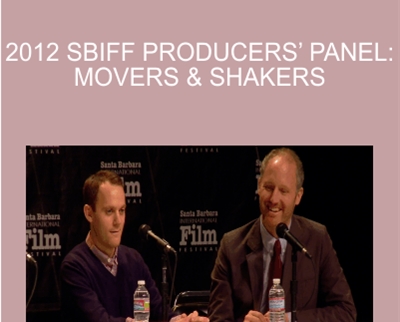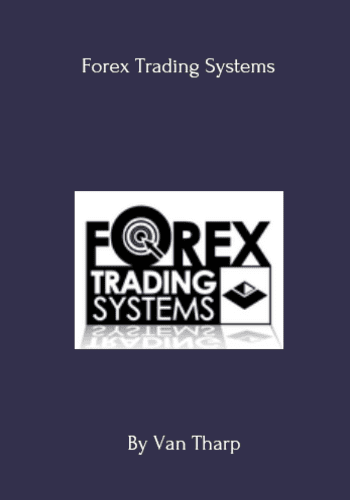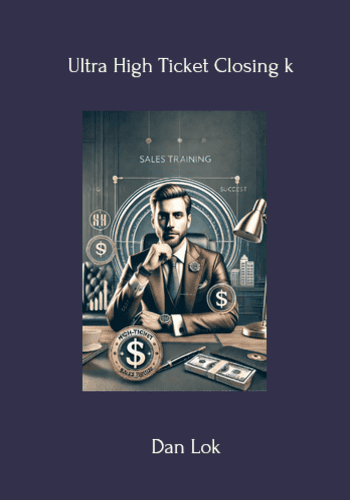2012 SBIFF Producers Panel-Movers and Shakers – Patrick Goldstein
Original price was: $300.00.$42.00Current price is: $42.00.
2012 SBIFF Producers Panel-Movers and Shakers – Patrick Goldstein Download. AnonymousGood afternoon, everybody. Roger Durling, Executive Director of Film F…
Salepage link: At HERE. Archive:
AnonymousGood afternoon, everybody. Roger Durling, Executive Director of Film Festival. Welcome. It’s a fantastic panel, and let me introduce it right away. Graham King, producer, Hugo. Nominated for the Oscar. Mike DeLuca, nominated for best picture, Moneyball.
Bill Pohlad, nominated, best picture, Tree of Life. Jim Burke, nominated for the Oscar for the Descendants. Letty Aronson, nominated for Midnight in Paris. And please welcome our moderator for many years, friend of the festival, Patrick Goldstein, who’s a columnist for the LA Times Big Picture.
– Wow, thank you guys very much for coming out to see, we’ve got, obviously, a fantastic panel. We’re gonna talk a lot about money and art today. And since in the film business there’s really no movie until you have the money to pay for it, I’m gonna start with a few business questions. Letty, you’re right at my side. I read something really interesting recently about Midnight in Paris.
That it almost didn’t get made. – Correct. – And that Woody had written the script, shelved it for a while, and it was because shooting in France was expensive and you actually were waiting for the French government to pass some new, I don’t know what. A tax credit? – A tax credit. – What happened? – Well we were supposed to do this film a few years ago and, in fact, it got to pretty down the road to a point where I had already gone there, hired some people, but when we budgeted the whole thing out the way Woody wanted to do it, it was more than we had to spend.
And we always have a finite amount of money. We don’t have a studio to go back to if it goes over or instead of 18 it’s gonna be 22 or whatever. So we did shelve it. And then in the intervening years France put in a tax refund for working there. And the difference that that made for us made it possible, two years later, to then be able to do the film.
– And I feel like Woody’s last six or seven movies have largely been financed by European– – Correct. – Investors. Tell me, how did that come about in the sense did they come to you or was that more of an entrepreneurial idea on your part? – Well, you know, Woody’s films have always done better in Europe than in this country. Traditionally. And this country has always been a studio system, although there are independent films. Whereas in Europe there’s never a studio system.
It’s always independent films and they very much admire the filmmaker. There’s a big thrust in that direction. So that given that we do better there and they’re interested in the filmmaker, it was easier to go there and try to get money than in this country. We don’t work the way the studios work. They wouldn’t be comfortable working the way we work and visa versa. We don’t give a script to read.
Woody doesn’t write until the money is in place. So, you have to get the money. – I wish I could do that. – So I have to get the money based on nothing. Not that Woody’s nothing, but it’s just based on Woody. – That’s producing. That is. (clapping) – There’s no script and there’s nobody attached to it and there’s no anything and he doesn’t write, as I say, until there’s money, so they have to agree, even when there’s a script, they don’t get to read the script.
They don’t get any input on the cast. They don’t come to dailies. They don’t see a rough cut. You pay your money and you do get a film and it’s always on budget and it has good actors and Woody has directed and written it, but it’s the only way that he can work or will work and that doesn’t work in this country with the studios. – We have two producers here on the panel who often invest their own money into their films. So I’d like to go get their perspective, as well.
Graham, I know you went looking for a studio partner for Hugo and we knew it was going to be an expensive undertaking, but what happened when you had Marty Scorsese doing a great film about the history of the film business. What happened when you made the rounds looking to see if you could find a partner? – I actually didn’t do that because Marty and I were going to make this movie after Departed, after we did Departed together at Warner Brothers.
And the script wasn’t quite right and Warner’s wasn’t that into the movie at the time, so Marty went off and did Shutter Island and I did some things. And I actually had about five or six filmmakers come to me during that time saying we’d love to get in on Hugo and do Hugo. But for me I had to do it with Scorsese. If it wasn’t Scorsese, I don’t think I would have done it at all. And then I changed my business strategy during that time and I left Warner Brothers and did a deal with Sony where it’s not me but my investors put up the money and Sony releases the movie.
And Hugo fell into that category, so after Marty had finished Shutter Island I went back to him and said let’s do this movie together, and that’s how it all started. It’s a big undertaking. It’s a huge movie. We had no idea what we were getting into. Budget wise, schedule wise, the 3D, it was all new to everybody. Marty has a team that are really some of the best in the business, with Bob Richardson and Rob Legato and Dante Ferretti, and when the set designer doesn’t talk to the DP about this new camera showing up and the camera is four times bigger than one would imagine and the set’s already built, you start having trouble.
So Marty’s shot just kind of went out the window on the first day of shooting because he saw all these new toys to play with in 3D and he loves to do these tracking camera shots through the book shop and it would take, literally, four hours to set up a shot because the angle he wanted, we had to take half the sets down and then rebuild again. So that’s how it started. But, as far as financing goes, when you go into a movie that big and that ambitious you’re always gonna face hurdles, but, regardless, when you come out at the other end, to me, anyway, and to my investors, it’s not just about the dollar.
I think that Scorsese made a masterpiece and it’s a movie I think– (clapping) So I think it’s about longevity. And that revenue stream can come back now and it can come back in twenty years time. – You started in the business in international sales at Fox and, obviously, you know the international market really well. I’m curious. So you will sell off some of the foreign territories? How does that work in terms of your strategic idea of how much of the movie you want to– – Right.
International is all down to relationships and I had guys in the UK, France, Italy, that wanted a buy in to Hugo at an early state, at the screenplay stage. So I did set up some territories, those territories. And the rest then goes to Paramount for distribution. And it’s always a tough decision to make. Whether you pre-sell a film to a certain market, or you wait and let the studio release it. Sometimes you roll the dice and sometimes you don’t. On this one, because we saw where it was going, budget wise, that’s when I decided we better lay off some risk.
– Bill, a Terrence Malick film definitely doesn’t fit the big studio economic model. Did you always know that you would end up handling the financing? – Well, I mean, I suppose so. We didn’t do it by ourselves, of course. We did got out and sell foreign territories and things like that and had some good partners on it, but generally, yeah, River Road was doing it. And, again, I kind of heard this story from Terry, working with him back 10 or 12 years ago, so it wasn’t like some snap decision.
I had a lot of time to think about it. He talked about it about 10 years ago, and it was still evolving in his mind, so by the time it came back around and he was ready to do it, I was more prepared. I knew how Terry worked. I knew how his scripts worked and I knew what his vision was, a little bit. – Well, I was gonna ask you about that because I know you told one interviewer that when Terry first pitched you the idea you though it was crazy. And I’m kind of curious, how does it go from this is crazy to I’ll produce the movie? – Well, crazy in a nice way.
I didn’t mean crazy like… (laughing) No, it was unusual. Hopefully most of you have seen the movie and you can imagine what the pitch was or what his description was. It was out there. At that time it was half creation and half this small town in Texas and the family growing up. It was an unusual, let me get this right. What happened there? – So Jim. The Descendants.
It has Fox Searchlight behind it. Your filmmaker, Alexander Payne, had a relationship there, had made his last movie there. Your economic challenge, I would think, is you’re making a roughly 20 million dollar movie and you’re shooting it all on location in Hawaii. I’ve spent a lot of time in Hawaii. I know that gas costs more there, food costs more there, pretty much everything except papayas cost more there.
So how do you stay on budget? What are the kind of things you did, the ways you found to stretch your budget as far as it could go in a place that’s notoriously expensive? – Well, we worked with a lot of local people for two reasons. One, the actors, we wanted to keep the authenticity of the place alive and present in the film. So we hired many, many local people in the parts. And the crew, which was a great crew, and many of them lived there, so it saved us money.
You’re right. Everything costs more. And so to make our movie, what we wanted to do was shoot for the most amount of days for 20 million dollars. And then everybody, including George, they all sacrificed a little bit of their compensation for the love of the film. – So how many days did you have? – 52. – 52. And lets, I’d love to hear some comparisons.
That, I think, might be interesting. So, by your standards, 20 million dollars, 52 is a lot of days. – It’s a whole lot of days, yeah. – Letty? – No, we always shoot for seven weeks because that’s all the money we have and it’s usually 17, this was 18 million. – Mike? – It’s about 52 days and I’m not saying a number. – Bill? – Actually, I honestly don’t remember the number of days, but Terry was, on all things, right on budget.
In fact, I think we finished like a day early or something like that. – And Graham? How’s your memory? – Brad Pitt said to me the other day… (laughing) I think we could have shot all these movies and still be shooting our movie. Ours was a long shoot, a long and tedious shoot. But, I’ve been saying it’s the hardest movie I’ve ever produced, but also I think the best one. – Letty, I was going to ask you, because the challenge here when you don’t have a lot of money, how do you make it go as far as possible and get what you want? – Well first of all, after Woody writes the script and wants to go ahead with it, we budget it.
If it budgets out much too much, we don’t do it and he writes something else. If it budgets out a little bit too much, we hope there’ll be savings. But our situation is that anything over what I’ve raised from the investors, if it’s important for Woody to have it in the film, he pays for himself. So that if we’ve got 18 million dollars and he needs three days of re-shoots that we can’t afford anymore or rain or something special, for him the project is more important than anything else, so he, then, will pay for it.
– Woody Allen’s better at Moneyball than we were. Like, in terms of that doctrine, he really is an example of it. – And how does that apply, has anyone had a similar experience? Jim? Did you always know you were gonna come in close to budget? – Yeah, we didn’t have, I’d say as filmmakers we’re kind of conservationists. We have a general feeling that film costs too much to start with.
Now, like Graham’s movie Hugo, that’s a big movie and so I’m not talking about that, but I think you can make a really good movie and it doesn’t have to cost that much. So that’s our sort of attitude when we go into things and we kind of question, and it’s not just me, in this case it was Alexander. As the filmmaker he would always say do we need all this? We shot a scene off of Waikiki in a boat. We had to have two barges all for a little canoe where people throw ashes off the side, and he stopped everybody and said who doesn’t need to be here and what else can you be doing to help the movie? And we got a lot more accomplished that day.
Here's an overview of the prominent keywords and a list of famous authors:
Business and Sales: Explore business strategies, sales skills, entrepreneurship, and brand-building from authors like Joe Wicks, Jillian Michaels, and Tony Horton.
Sports and Fitness: Enhance athleticism, improve health and fitness with guidance from experts like Shaun T, Kayla Itsines, and Yoga with Adriene.
Personal Development: Develop communication skills, time management, creative thinking, and enhance self-awareness from authors like Gretchen Rubin, Simon Sinek, and Marie Kondo.
Technology and Coding: Learn about artificial intelligence, data analytics, programming, and blockchain technology from thought leaders like Neil deGrasse Tyson, Amy Cuddy, and Malcolm Gladwell.
Lifestyle and Wellness: Discover courses on holistic health, yoga, and healthy living from authors like Elizabeth Gilbert, Bill Nye, and Tracy Anderson.
Art and Creativity: Explore the world of art, creativity, and painting with guidance from renowned artists like Bob Ross and others.
All the courses on WSOlib are led by top authors and experts in their respective fields. Rest assured that the knowledge and skills you acquire are reliable and highly applicable.
Specification: 2012 SBIFF Producers Panel-Movers and Shakers – Patrick Goldstein
|
User Reviews
Only logged in customers who have purchased this product may leave a review.

Original price was: $300.00.$42.00Current price is: $42.00.












There are no reviews yet.